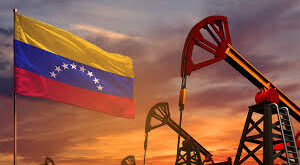Refining margins for diesel in Northwest Europe end this year 40% below the levels from the end of 2022, despite the EU ban on seaborne imports of Russian petroleum products that came into effect in February 2023.
Europe has imported more diesel from the Middle East and Asia this year to offset the loss of Russian fuel supply. Import levels were high enough to ease fears of a supply shortage in the first winter without Russian fuels. A warmer autumn and a warmer start to the winter heating season have also helped ease some of the concerns of a supply crunch.
The diesel barge refining margins in northwestern Europe ended 2023 at $25 per barrel, down by around 40% compared to the same time in 2022, according to data compiled by Reuters and published on Friday.
At the end of last year, fears of a diesel supply shortage were more pronounced as the market didn’t know what to expect when Europe loses around 600,000 barrels per day (bpd) of Russian diesel supply.
Globally, diesel and other distillate inventories are higher now than they were this time last year, suggesting that a tight global diesel market has started to ease, in part due to slowing construction and manufacturing activity in the United States and major European economies.
Refiners produced high levels of distillate volumes in the third quarter of 2023, adding to stockpiles, while the economic slowdown is weighing on diesel consumption. Diesel demand in Europe is already weak due to slow industrial activity, which could ease the tight market and help Europe go through the winter with less anxiety and concerns.
U.S. diesel prices have dropped in recent weeks and are now at their lowest since July—welcome news for the Fed’s continuing fight against inflation as the prices of goods are closely linked with the price of diesel.

 Iran Energy News Oil, Gas, Petrochemical and Energy Field Specialized Channel
Iran Energy News Oil, Gas, Petrochemical and Energy Field Specialized Channel



